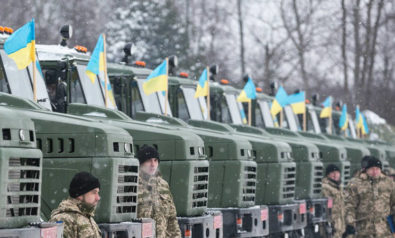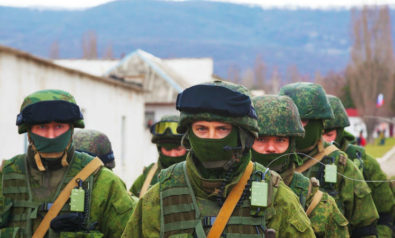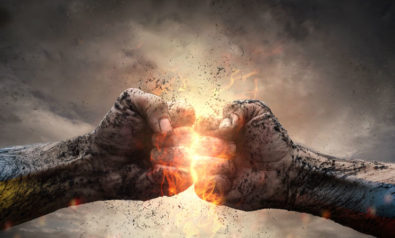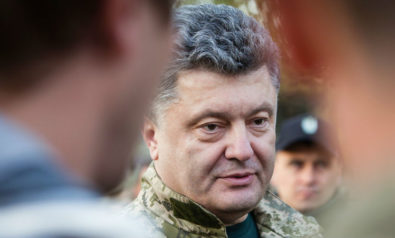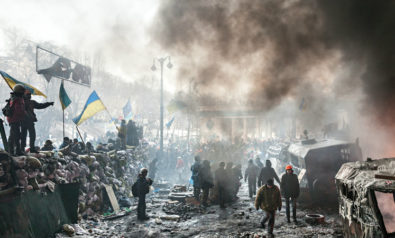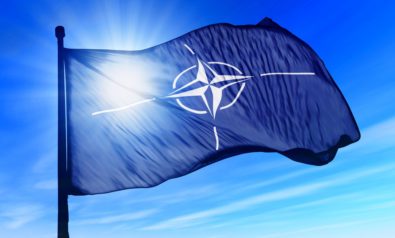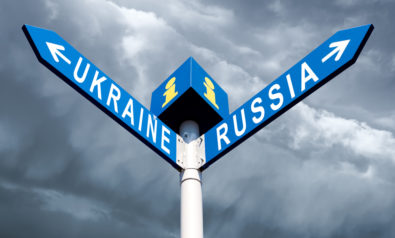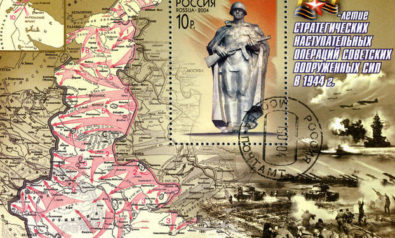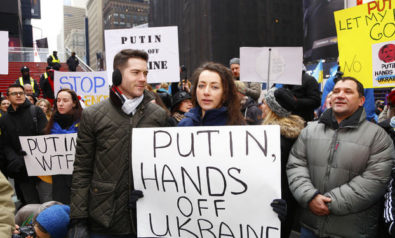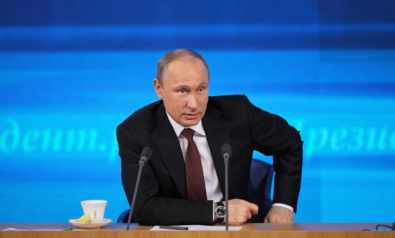Why the EU and Russia are both keen on winning over Ukraine.
Background
The recent wave of protests in Ukraine began when the government suspended preparations to sign the European Union’s (EU) proposed trade and partnership agreement in November 2013. The bill would have brought Ukraine closer to the EU, while the government's move was an attempt to cement stronger relations with Russia instead.
As more than 100,000 people rallied in the capital of Kiev, it seemed as if the Orange Revolution was repeating itself. This time, however, protests were much more violent as dozens died and hundreds were injured during clashes with police. Protestors called for the resignation of President Viktor Yanukovych, early elections, and a repeal of anti-protest laws.
In 2004, the demonstrations against Yanukovych, the pro-Moscow presidential candidate, led to reelections. The opposition leader, Viktor Yushchenko, became the country’s new president and Yulia Tymoshenko its prime minister.
The victory of the Orange Revolution did not last for long. Yanukovych stepped back into power after being reelected in 2010, while his rival, Tymoshenko, was jailed for two-and-a-half years. She was only released recently.
Ukraine has been torn between East and West since the collapse of the Soviet Union. According to a recent poll, 46% of Ukrainians support Ukraine’s integration with the EU, and 36% oppose it. Those who rally in Kiev are pro-EU, but the mainly Russian–speaking east and south prefer closer cooperation with Russia.
As the EU tries to strengthen its ties with Ukraine, Russia is doing the same. Russian President Vladimir Putin would like to see Ukraine to join the Moscow-driven economic group, the Eurasian Customs Union. It consists of Russia, Belarus, and Kazakhstan and is part of a larger plan to create an association of former Soviet countries,due to be launched next year.
Yanukovych has sent mixed signals for years. At times, he has said that Ukraine will join the Customs Union, and at others, he has raised hopes of joining the EU.
As the violence escalated during protests, the Ukrainian parliament voted to overthrow Yanukovych and send him to The Hague. The president has since fled his home and is now wanted on charges of mass murder. At the same time, pro-Russian demonstrators have been clashing with anti-Yanukovich protestors.
Why are Anti-Government Protests in Ukraine Relevant?
Although for Ukraine it is not only about choosing between Russia and the EU, but changing the whole post-Soviet political system, the situation demonstrates the need for better dialogue between the EU and Russia, both of which have interests in Ukraine.
If Ukraine were to move closer to the EU, it would mean access to the European market, encouraging further investment. The EU is among Ukraine's most important commercial partners and accounts for approximately one-third of its external trade.
The Moscow-led Customs Union, however, depends largely on whether Ukraine signs up. Putin has said the trade agreement with the EU would be "a big threat" to Russia’s economy.
Moving closer to Russia would mean that Ukraine would bring its rich mineral resources and large market to the table. Kiev’s industry depends on Russian natural gas, which gives Russia enormous leverage, whereas the EU is believed to be unprepared to help Ukraine escape a financial crisis.
Russia has accused the EU of seeking to create a "sphere of influence" on its borders at the expense of relations with Moscow. However, EU officials increasingly highlight the need for including Russia in the discussion over Ukraine. Putin recently responded that he would welcome closer economic ties between the EU and Ukraine.
At the end of the day, Ukraine might end up being the reason for the EU and Russia to finally settle their differences and cooperate.
Image: Copyright © Shutterstock. All Rights Reserved
For more than 10 years, Fair Observer has been free, fair and independent. No billionaire owns us, no advertisers control us. We are a reader-supported nonprofit. Unlike many other publications, we keep our content free for readers regardless of where they live or whether they can afford to pay. We have no paywalls and no ads.
In the post-truth era of fake news, echo chambers and filter bubbles, we publish a plurality of perspectives from around the world. Anyone can publish with us, but everyone goes through a rigorous editorial process. So, you get fact-checked, well-reasoned content instead of noise.
We publish 2,500+ voices from 90+ countries. We also conduct education and training programs on subjects ranging from digital media and journalism to writing and critical thinking. This doesn’t come cheap. Servers, editors, trainers and web developers cost money.
Please consider supporting us on a regular basis as a recurring donor or a sustaining member.
Support Fair Observer
We rely on your support for our independence, diversity and quality.
Will you support FO’s journalism?
We rely on your support for our independence, diversity and quality.



